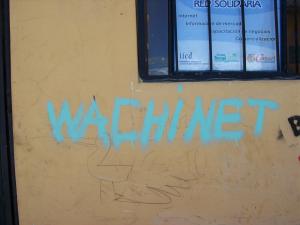
 ITCs for everyone APC organised an event on equitable internet access in Rio de Janeiro on the November 10 2007 where we saw a number of trends and an emerging consensus on how to provide access to the internet for anyone who wants or needs it including the poorest people, i.e. “pro-poor” access.
ITCs for everyone APC organised an event on equitable internet access in Rio de Janeiro on the November 10 2007 where we saw a number of trends and an emerging consensus on how to provide access to the internet for anyone who wants or needs it including the poorest people, i.e. “pro-poor” access.
− The “digital divide” still lives on. Pro-poor access is still a big challenge in many developing societies.
− The market alone cannot tackle pro-poor access. It requires involvement from local communities and civil society organisations and innovations at local levels.
− Stronger, independent and legitimate regulators in many developing countries are needed if the pro-poor access agenda is going to advance.
− The capacity to address these complex issues needs to be built across all stakeholder groups working in this area (policy-makers, regulators, business, media, civil society and local communities).
It’s time to rethink national ICT strategies putting the poor first
The Rio event also noted that national ICT and/or e-strategies should be revisited from the equitable access point of view. Such an approach makes pro-poor access a key consideration to be taken into account when looking at all aspects of communications policies (i.e. universal access strategies, national e-strategies, new technologies, content, applications, access rights, open access issues, and regional infrastructure strategies).
This timely re-thinking is only possible if policy makers, practitioners and advocacy groups are familiar with the innovative interplay between ICT policy and technology solutions around the world.
The new ideas emerging
There are a number of emerging ideas and options being developed in the access debate. These include:
− The need for a change in the mandate for universal access funds to carry out broader forms of support than just providing and running public telephones i.e. for the funds to support affordable universal broadband, content and capacity development.
− New roles for telecentres as network and capacity-building hubs for community-driven networks. So that local telecentres can become responsible for bandwidth distributions in their local communities, besides being a place where people come to surf the internet.
− The move towards “open access” and shared infrastructure. For more reading see eg. Infodev, the ITU on shared infrastructure and open access and APC’s advocacy and research on open access.
− Building of innovative municipal networks, like community wireless internet hotspots.
− The recent exploration for new investment models for ICT and related infrastructure.
− The development of successful models for multi-stakeholder ICT4D networks (see APC’s work in Africa and Latin America and APC’s related publication).
It is important for stakeholders to be aware of, and have information on, these emerging ideas and options.
The pro-poor kit
APC’s pro-poor ICT access kit currently under development is a resource for stakeholders working on the issue of local access to ICTs. This kit will consist of three modules – each focusing on a different topic. The modules are:
• Policy and regulatory issues
• Implementation of projects at the community level
• Advocacy strategies and approaches
The modules are being produced by leading experts including Steve Buckley, Tina James, Sean O’Siochru and Claire Sibthorpe (coordinator).
For more information visit the project page and read Why APC continues to obsess over internet access.
Photo by Paco Olaya Pabón: Wireless internet centre “WACHINET” in Ecuador